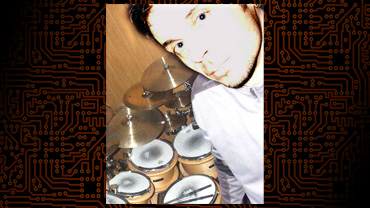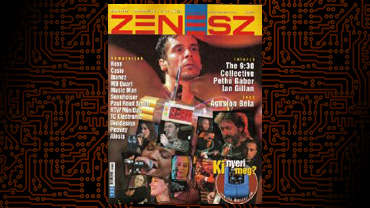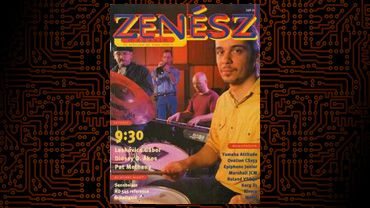About the interviews
"For me, it has always been a critical issue how authentically and closely the disclosing reporter, photographer, cameraman or even sound engineer could convey the musical and other thoughts and ideas I addressed at the world. There are few things that bring me down more than sitting in for an interview and then, when it is published or broadcast – being confronted with the fact that my discussion partner had not glimpsed the faintest idea of what I meant. Unfortunately, this happens more and more often.
In this respect, my greatest favorites are the morning programs of commercial television channels. I imagine that there must be some wicked internal directive issued telling the talk-show hosts that it is strictly forbidden to learn things about the background of their guests, and a heavy fine is to be paid for intelligent questions and curiosity. Well, this selection was made from another interview pool." E.g., I do know that Gyuri Maróthy habitually, moves around in a musical environment completely different from ours, and yet I could sense that he was interested in and fascinated by what he heard, and eventually our expressed opinion was reflected in his writings in a suitable, correct form. I was above all impressed to see his pre-WW2 working methods: a little college writing pad with grid chart pages, no dictaphone, no mp3 recorder, or other nonsense stuff. He was like a composer who could still score music in the 21st century without a sequencer."
Budapest Autumn Festival, A38 ShipExcerpts from the "A38 - Contemporary Jazz Nights" series Interviewer: Zoltán Végső |
 |
Endre HuszárDobos (Drummer) magazine, 2007 Over the last twenty years the Hungarian public has seen many faces of Endre Huszár; he has been active as a drummer, composer, journalist, and radio broadcaster. A few years ago he appeared in 9:30 Collective, a very special group of excellent musicians, which in spite of the positive reception only rarely performs, and then withdraws from the public eye. My first question was about the reasons for this "hermit-like" way of life. Read more... |
 |
21st Century Fusion MusicZenész (Musician) magazine, 2005 Police are out on the hunt, looking for a serial killer. The delinquent appears to pick exclusively senior managers in the music and record business as targets, and indulges in the habit of leaving the material of a yet unknown jazz album at each crime scene. It goes without saying that this 'evidence' is then subsequently broadcast on television and radio channels as corpus delicti. When at last the serial killer – who is no-one else but the composer of the music – is apprehended, it is discovered that the murderous deeds were committed just to show that a jazz album can indeed enter the realm of commercial media. Read more... |
 |
Zenész (Musician) magazine, 1998There was once a legendary album by Weather Report, the 8:30. Nearly two decades later a brand new Hungarian formation decided it was time to move on, and they took the name 9:30. Sorry, that was just a journalist's introduction. Because these musicians are far from being arrogant, though they have good reason to be satisfied with themselves, because the album has been a topic of conversation in the music world ever since its release. The album bears the same name as the band, 9:30, and we spoke about it to drummer, composer and musical director Endre Huszar. Read more... |



